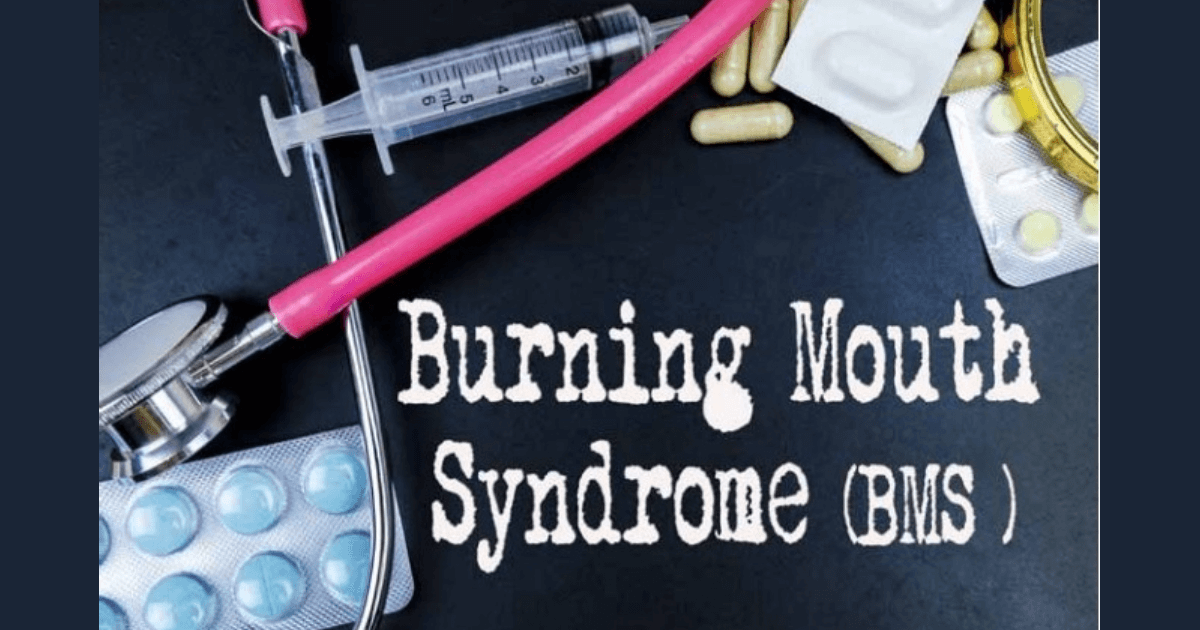Burning mouth syndrome
Treatment of burning mouth syndrome is highly individualized and depends on particular signs and symptoms and on the underlying cause.
Does it ever feel like your mouth or tongue is on fire even though you haven’t eaten anything spicy? If so, it might feel like some burning sensation in the mouth which is basically Burning Mouth Syndrome (BMS).
The main symptom of burning mouth syndrome is pain in the mouth that is burning, scalding, or tingling. Or, the pain which may occur with a feeling of numbness, which comes and goes. Usually, the tip and lateral sides of the tongue is affected, but the pain may also involve the lips, roof of the mouth, or widespread areas of the mouth.
It has no known cause. Well, burning mouth syndrome generally occurs in middle-aged or older adults. But it may occur in younger people as well. But also affects among 2% population of women. The disorder has long been associated with various other conditions including menopause, psychological problems, nutritional deficiencies, oral thrush and dry mouth.
Some other possible causes would include:
- Hormone changes
- Stress, anxiety or depression n Problems immune system
- Damage to the nerves controlling taste or pain
- Reaction to certain types of toothpastes or mouthwashes
- Ill-fitting dentures or being allergic to the materials used to make dentures
There are some medical conditions which might cause burning mouth syndrome. They are:
- Dry mouth
- Acid reflux
- Thrush (a fungal infection in your mouth, also called ‘candida’)
- Nutritional deficiencies (for example, when your body does not make or store enough iron, vitamin B12 or folic acid)
- Diabetes
- Thyroid problems
Burning mouth syndrome pain can last for months or years. Some people feel constant pain every day. While for some people pain increases throughout the day. Whereas some feel reduction of pain on eating or drinking.
Treatment of burning mouth syndrome is highly individualized and depends on particular signs and symptoms and on the underlying cause. Burning mouth syndrome are of two types: primary and secondary.
Primary Burning Mouth Syndrome: As it has no known cause, there is no known cure for primary burning mouth syndrome. Treatment depends on particular symptoms and is aimed at controlling them. It may take time for treatments to help manage the symptoms.
Few things that can be considered:
- Drink plenty of fluids to help ease the feeling of dry mouth
- Suck on crushed ice
- Chewing sugar-free gum – this helps you produce more saliva which helps to stop your mouth getting dry
- Avoid acidic foods and liquids, such as tomatoes, orange juice, carbonated beverages and coffee
- Avoid spicy-hot foods
- Avoid products with cinnamon or mint
- Avoid alcohol and products with alcohol, as they may irritate the lining of your mouth
- Don’t use tobacco products
- Try different mild or flavour-free toothpastes, such as one for sensitive teeth or one without mint or cinnamon
- Take steps to reduce stress
Secondary Burning Mouth Syndrome:
For secondary burning mouth syndrome, treatment depends on any underlying conditions that may be causing your mouth discomfort. For example, treating an oral infection or taking supplements for a vitamin deficiency may relieve your discomfort. That’s why it’s important to try to pinpoint the cause. Once any underlying causes are treated, your burning mouth syndrome symptoms should get better.
If you have persistent pain or soreness in your tongue, lips, gums or other areas of your mouth, see your doctor. Your doctor can search for the possible cause or causes to guide the treatment. Burning mouth syndrome can be painful and frustrating. The good news is that it’s a treatable condition.
Although it may take time, with the help of a team of health professionals, you can usually find a treatment plan that’s right for you. Patients who experience improvement with treatment can expect good control for years. There is no association of Burning Mouth Syndrome with development of oral cancer.

Composed by Dr. Vishaj S. Maru, dental surgeon

